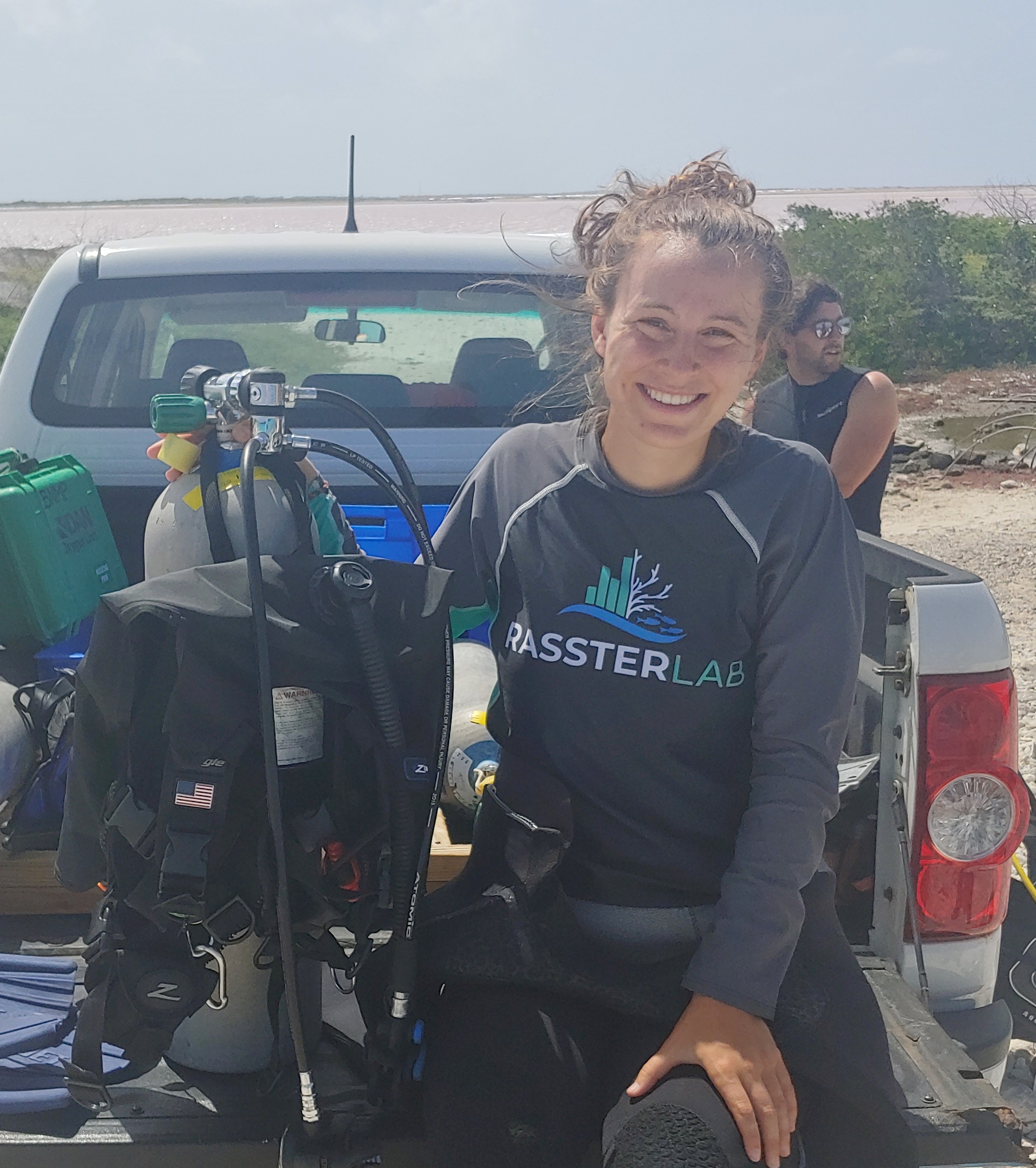UROP Research Mentor Project Submission Portal: Submission #521
Submission information
Submission Number: 521
Submission ID: 8876
Submission UUID: 26592673-6f0d-4862-9f64-8134b13e955b
Submission URI: /urop-research-mentor-project-submission-portal
Submission Update: /urop-research-mentor-project-submission-portal?token=GMUyYx5CZBsC5xACjl1v-tlU2j7tuOQbvRJ7YCZnzNM
Created: Mon, 08/21/2023 - 08:45 AM
Completed: Mon, 08/21/2023 - 08:55 AM
Changed: Thu, 09/28/2023 - 08:01 PM
Remote IP address: 199.185.175.62
Submitted by: Anonymous
Language: English
Is draft: No
Webform: UROP Project Proposal Portal
Submitted to: UROP Research Mentor Project Submission Portal
Research Mentor Information
Allie Blanchette
she/her/hers
{Empty}
Graduate Student
{Empty}
{Empty}
Arts and Sciences
Biological Sciences

Additional Research Mentor(s)
Overall Project Details
Assessing coral cover and mortality in relation to farming damselfish
Coral reef, marine biology, CoralNet, photo annotation, farming damselfish
No
1
Biology, Environmental Science
On FSU Main Campus
{Empty}
Partially Remote
7-10
Flexible schedule (Combination of business and outside of business. TBD between student and research mentor.)
I am studying how corals vary in benthic cover and mortality based on various factors, including variation among genotypes and species, and the effects of farming damselfishes. The coral species that I am studying are Acropora cervicornis and Orbicella spp. in Bonaire (Dutch Caribbean) and Acropora pulchra in Moorea (French Polynesia). In order to measure coral cover and mortality, our lab takes hundreds of photos of the corals on SCUBA and snorkel (approx. 1 meter above the coral), then we assess those photos for percent cover of live coral, dead coral, and other important organisms and substrates on the reef. In order to measure how farming damselfishes affect corals, I placed GoPro cameras in front of damselfish territories to record their behavior. The UROP student(s) will have 2 major roles in this project: 1) to help train an algorithm in the open source machine learning software CoralNet (https://coralnet.ucsd.edu/) by identifying the organisms/substrates in the photos, and 2) to record rates of different behaviors that the damselfish exhibit in GoPro videos.
The first research task of the UROP student will be photo annotation in CoralNet (i.e., data collection and processing). CoralNet randomly places a set number of points on each photo, and the student will be responsible for identifying the organism or substrate that each point lands on, which will help train the algorithm. The second research task will be video annotation in the software BORIS (i.e., data collection and processing). The student will record occurrences of different damselfish behaviors in 15-30 minute videos, such as chasing other fish, hiding, and biting at coral or algae. I will help train the student with the required software programs, species and substrate identification, and basic coral reef ecology. However, an interest in marine biology is preferred. At the end of the position, the student will be involved in data analysis and address their own research questions using this dataset.
No skills are required, but an interest in marine biology is preferred.
I plan to work closely with the student at the beginning to teach methods and to answer any questions. As the student’s confidence increases, I can slowly become more hands-off if the student desires. In order to mentor the student as a scientist, and not just a photo annotator in CoralNet, we will also practice finding and discussing scientific papers, generating research questions, analyzing data in R, and scientific writing. Our lab is committed to creating a supportive and inclusive environment and we encourage students typically underrepresented in STEM to apply. Students that are eligible for federal work-study should note that they can earn their work-study funds through UROP. Our lab is very collaborative in nature, and the student will be able to learn from and work alongside other undergraduates in the lab that are also working with CoralNet for other projects. My goal for the end of the school year is for the student to feel like they are a part of our research team and to be prepared to further pursue their interests in biology and research.
https://scholar.google.com/citations?user=i4N7RqgAAAAJ&hl=en
{Empty}
Yes
Zoom link: https://fsu.zoom.us/j/92104938504
Tuesday 2:00-2:30
Thursday 2:00-2:30
Friday 2:00-2:30
Tuesday 2:00-2:30
Thursday 2:00-2:30
Friday 2:00-2:30
{Empty}
UROP Program Elements
Yes
Yes
Yes
Yes
{Empty}
Yes
{Empty}
2023

